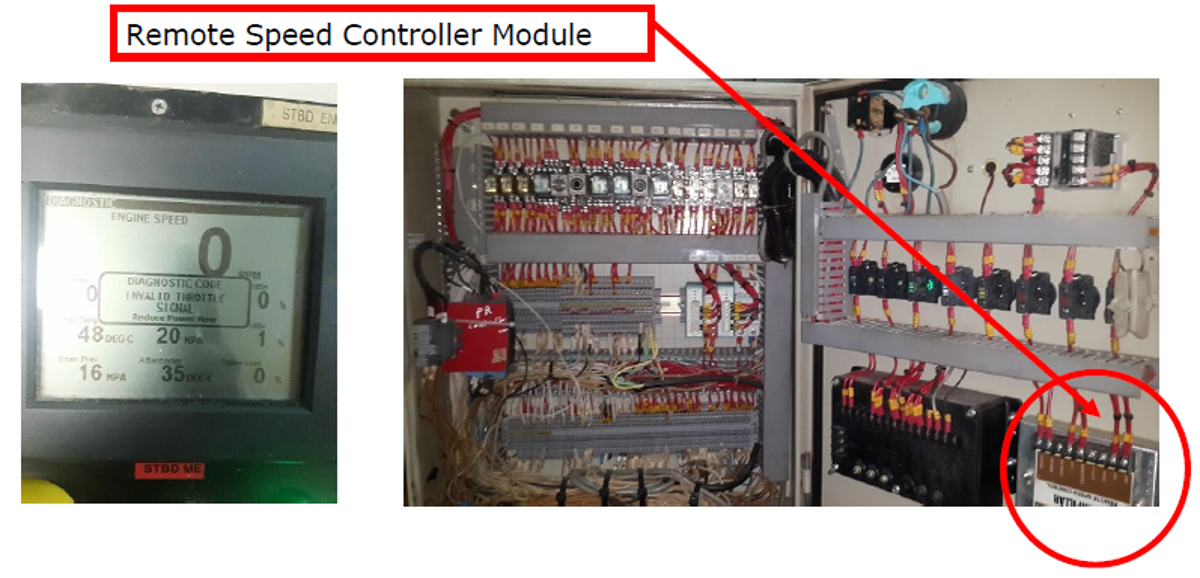Control module failure caused main engine sudden reduction to idle speed
- Safety Flash
- Published on 17 September 2018
- Generated on 5 March 2026
- IMCA SF 21/18
- 1 minute read
Jump to:
An offshore support vessel (OSV) was underway to field loaded with cargo when a sudden drop of starboard main engine RPM was observed.
What happened?
The main engine dialog screen gave the error message <invalid throttle signals>. The engineers informed the bridge immediately. Investigation began; the onshore office and the client were also informed. With the client, it was decided to take the vessel back into port as a quick fix was not available.

What went wrong? What were the causes?
- The remote speed controller module had failed.
- The cause was overheating for a prolonged period.
- The root cause was assumed to be extremely unfavourable conditions (hot and humid) in the engine room, leading to unexpected and unpredictable failures of electronic components because of high temperatures.
Recommendations
- Crew should remain aware of and alert to the likelihood of unexpected equipment failure under extreme conditions of heat.
- Sufficient spares of potentially vulnerable electronic items should be carried and stored appropriately.
Our member started a fleet-wide study of the effects of high engine room temperatures on electronic control equipment.
IMCA Safety Flashes summarise key safety matters and incidents, allowing lessons to be more easily learnt for the benefit of the entire offshore industry.
The effectiveness of the IMCA Safety Flash system depends on the industry sharing information and so avoiding repeat incidents. Incidents are classified according to IOGP's Life Saving Rules.
All information is anonymised or sanitised, as appropriate, and warnings for graphic content included where possible.
IMCA makes every effort to ensure both the accuracy and reliability of the information shared, but is not be liable for any guidance and/or recommendation and/or statement herein contained.
The information contained in this document does not fulfil or replace any individual's or Member's legal, regulatory or other duties or obligations in respect of their operations. Individuals and Members remain solely responsible for the safe, lawful and proper conduct of their operations.
Share your safety incidents with IMCA online. Sign-up to receive Safety Flashes straight to your email.